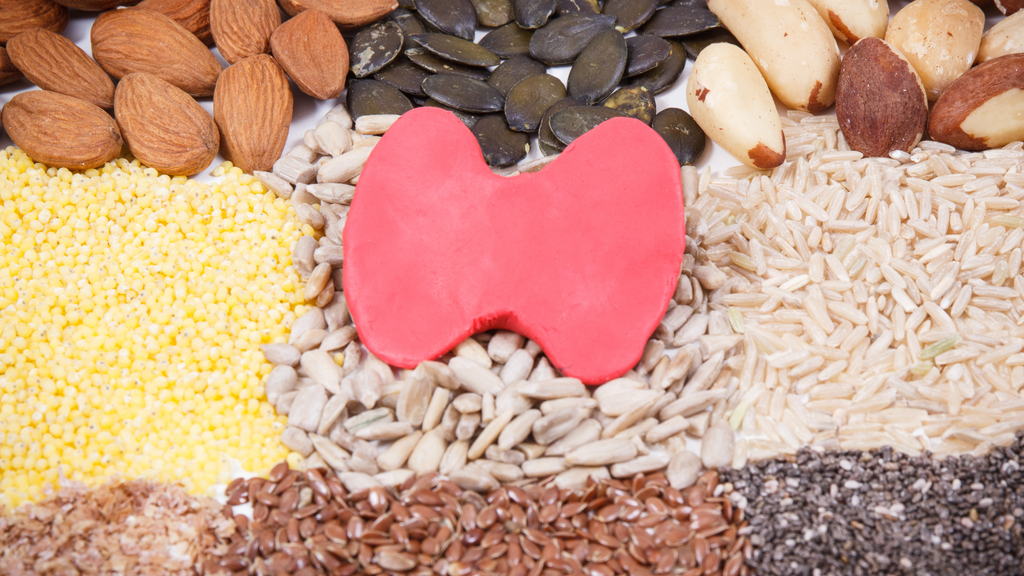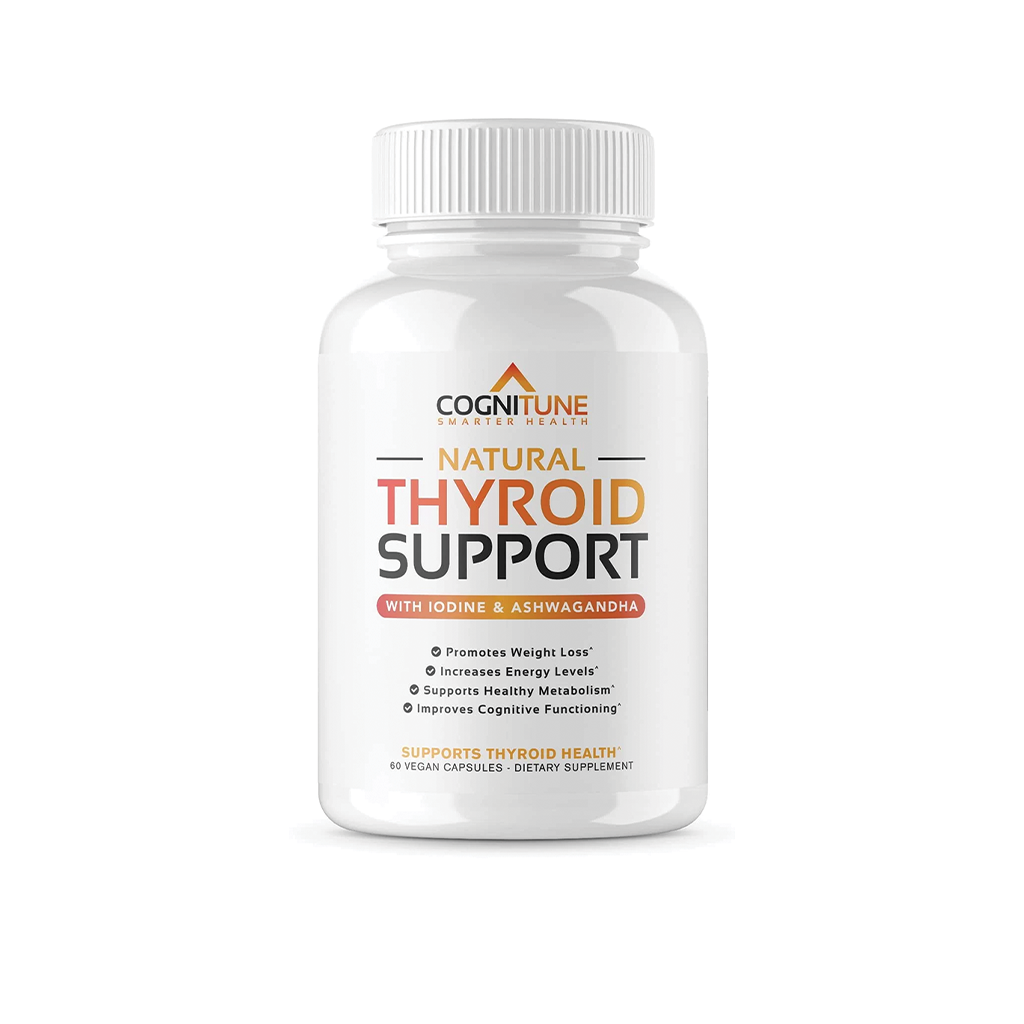The Impact of Poor Thyroid Nutrition on Overall Health and How to Support Thyroid Function

The thyroid gland, a small, butterfly-shaped organ located in the neck, plays a crucial role in regulating the body’s metabolism, growth, and energy production. When the thyroid is not properly nourished, it can lead to various health complications that affect the entire body. Understanding the importance of thyroid health and the nutritional factors that influence it is essential for maintaining overall well-being.
The Consequences of Poor Thyroid Nutrition
When the thyroid gland is not adequately nourished, it can lead to two primary conditions: hypothyroidism (underactive thyroid) and hyperthyroidism (overactive thyroid). Both conditions can have significant impacts on health.
- Hypothyroidism: In hypothyroidism, the thyroid does not produce enough hormones, leading to a slow metabolism. Symptoms include fatigue, weight gain, depression, dry skin, hair loss, and a slowed heart rate. Long-term, untreated hypothyroidism can lead to more severe issues, such as heart disease, infertility, and mental health problems.
- Hyperthyroidism: On the other hand, hyperthyroidism occurs when the thyroid produces too much hormone, speeding up metabolism. This can result in weight loss, rapid heartbeat, anxiety, tremors, and insomnia. Over time, if left untreated, hyperthyroidism can lead to complications like osteoporosis and heart problems.
Given the thyroid’s critical role in the body, it’s essential to ensure it is properly nourished to avoid these conditions and support optimal health.
Click Here to Check Price and Purchase our Recommended Thyroid Support Supplement on Amazon
Nutrients Essential for Thyroid Health
Supporting thyroid function through proper nutrition involves ensuring adequate intake of specific nutrients. Each of these nutrients plays a unique role in thyroid health, and deficiencies can disrupt the gland’s normal function.
- Iodine: Iodine is a key component of thyroid hormones (thyroxine (T4) and triiodothyronine (T3)), and without sufficient iodine, the thyroid cannot produce these hormones. This can lead to goiter (thyroid enlargement) and hypothyroidism. Iodine can be obtained from iodized salt, seaweed, dairy products, and fish. However, it's important to avoid excessive iodine intake, as it can also lead to thyroid dysfunction.
- Selenium: Selenium is essential for the conversion of T4 into the more active T3 hormone. It also acts as an antioxidant, protecting the thyroid from oxidative damage. Selenium deficiency can impair thyroid function and exacerbate conditions like Hashimoto's thyroiditis, an autoimmune thyroid disorder. Foods rich in selenium include Brazil nuts, sunflower seeds, eggs, and fish.
- Zinc: Zinc plays a role in the synthesis of thyroid hormones and supports the immune system, which is crucial for preventing autoimmune thyroid diseases. Zinc deficiency has been associated with hypothyroidism. Zinc can be found in meat, shellfish, legumes, and seeds.
- Iron: Iron is necessary for the production of thyroid hormones, and iron deficiency can lead to hypothyroidism. This is because iron is a component of enzymes that facilitate thyroid hormone production. Iron-rich foods include red meat, poultry, lentils, and spinach.
- Vitamin D: Vitamin D is essential for immune function and may play a role in regulating the immune response in autoimmune thyroid disorders. Studies have shown that low levels of vitamin D are common in individuals with thyroid disease, particularly Hashimoto’s thyroiditis. Vitamin D can be obtained from sunlight exposure, fatty fish, and fortified foods.
- B Vitamins (particularly B12): B vitamins support energy metabolism and the production of thyroid hormones. Vitamin B12 deficiency is often observed in individuals with thyroid disorders, particularly those with autoimmune thyroid disease. Foods high in B vitamins include meat, eggs, dairy products, and fortified cereals.
- Tyrosine: Tyrosine is an amino acid that combines with iodine to produce thyroid hormones. While the body can produce tyrosine from another amino acid called phenylalanine, it can also be obtained from dietary sources like meat, dairy products, and soy.
Click Here to Check Price and Purchase our Recommended Thyroid Support Supplement on Amazon
Optimizing Thyroid Health Through Diet and Lifestyle
In addition to focusing on these key nutrients, overall dietary and lifestyle habits play a significant role in supporting thyroid health.
- Balanced Diet: A well-rounded diet rich in whole foods, including fruits, vegetables, lean proteins, and healthy fats, can provide the necessary nutrients for thyroid function. Avoid highly processed foods, which can disrupt hormone balance and contribute to inflammation.
- Avoiding Goitrogens: Certain foods, known as goitrogens, can interfere with thyroid function by inhibiting iodine uptake. These include cruciferous vegetables like broccoli, cauliflower, and cabbage. While these foods are healthy, it's advisable to consume them in moderation, particularly if you have a thyroid disorder. Cooking these vegetables can reduce their goitrogenic effects.
- Adequate Hydration: Proper hydration is essential for metabolic processes, including thyroid function. Drinking sufficient water throughout the day can help maintain optimal thyroid health.
- Stress Management: Chronic stress can negatively impact thyroid function by increasing cortisol levels, which can inhibit the conversion of T4 to T3. Stress management techniques, such as meditation, exercise, and adequate sleep, are crucial for maintaining thyroid health.
- Regular Exercise: Physical activity helps regulate metabolism and supports overall hormonal balance. Moderate exercise, such as walking, swimming, or yoga, can be beneficial for thyroid health without overtaxing the body.
The Role of Supplementation in Thyroid Health
While a balanced diet is the best way to obtain essential nutrients, supplementation may be necessary in cases of deficiencies or increased needs. It's important to consult a healthcare provider before starting any supplements, particularly for thyroid health, as excessive intake of certain nutrients (e.g., iodine) can have adverse effects.
- Iodine Supplements: For individuals with iodine deficiency, supplements can help restore normal thyroid function. However, they should be taken cautiously to avoid excessive iodine intake.
- Selenium Supplements: Selenium supplementation has been shown to benefit individuals with autoimmune thyroid disorders, reducing inflammation and supporting thyroid function. A common dosage is around 200 mcg per day, but individual needs may vary.
- Vitamin D Supplements: For those with low vitamin D levels, supplementation can help support immune function and overall health, including thyroid health. Dosages typically range from 1,000 to 2,000 IU per day, depending on individual needs.
- Iron and Zinc Supplements: In cases of deficiency, iron and zinc supplements may be necessary to support thyroid hormone production and overall immune function.
Click Here to Check Price and Purchase our Recommended Thyroid Support Supplement on Amazon
Conclusion
Thyroid health is closely tied to overall nutrition and lifestyle choices. Ensuring adequate intake of essential nutrients like iodine, selenium, and zinc, along with maintaining a balanced diet and managing stress, can help optimize thyroid function and prevent related health issues. While supplementation can be beneficial for those with specific deficiencies, it’s important to approach it with caution and under the guidance of a healthcare provider. By prioritizing thyroid health through informed nutritional and lifestyle choices, individuals can support their overall well-being and reduce the risk of thyroid-related complications.
Sources:
Hypothyroidism
National Institutes of Health, US Dept of Health and Human Services
https://www.niddk.nih.gov/health-information/endocrine-diseases/hypothyroidism
Hyperthyroidism
National Institutes of Health, US Dept of Health and Human Services
https://www.niddk.nih.gov/health-information/endocrine-diseases/hyperthyroidism
Insufficient Iodine
Kapil, Dec 2007
https://www.ncbi.nlm.nih.gov/pmc/articles/PMC3074887/
Selenium deficiency
Wang, et al., Mar 2023
https://www.ncbi.nlm.nih.gov/pmc/articles/PMC10080082/
Zinc deficiency
Betsy, et al., Jan 2013
https://www.ncbi.nlm.nih.gov/pmc/articles/PMC3746228/#:~:text=Zinc%20and%20other%20trace%20elements,result%20in%20acquired%20zinc%20deficiency.
Iron deficiency
Garofalo, et al., Nov 2023
https://www.ncbi.nlm.nih.gov/pmc/articles/PMC10675576/
Hashimoto’s thyroiditis
Johns Hopkins Medicine
https://www.hopkinsmedicine.org/health/conditions-and-diseases/hashimotos-thyroiditis
Vitamin B12 deficiency
Benites-Zapata, et al., Feb 2023
https://www.ncbi.nlm.nih.gov/pmc/articles/PMC9994182/
Tyrosine
Mt Sinai
https://www.mountsinai.org/health-library/supplement/tyrosine#:~:text=Thyroid%20hormone%20%2D%2D%20Tyrosine%20is,used%20to%20treat%20Parkinson's%20disease.
Highly Processed Foods
Melough, et al., Aug 2022
https://www.sciencedirect.com/science/article/abs/pii/S0013935122003760
Goitrogens
Bertinato, 2021
https://www.sciencedirect.com/topics/veterinary-science-and-veterinary-medicine/goitrogen#:~:text=Goitrogens%20are%20naturally%20occurring%20substances,enlargement%20of%20the%20thyroid%20gland.
Proper Hydration
Yagmur, et al., 2019
https://acikerisim.balikesir.edu.tr/xmlui/bitstream/handle/20.500.12462/10472/8041-Article%20Text-33922-2-10-20191220.pdf?sequence=2&isAllowed=y
Stress
Puttaswamy, et al., Mar 2024
https://www.ncbi.nlm.nih.gov/pmc/articles/PMC10993923/
Iodine deficiency
British Thyroid Foundation
https://www.btf-thyroid.org/iodine-and-thyroid
Selenium supplementation
Wang, et al., July 2023
https://www.mdpi.com/2072-6643/15/14/3194
Vitamin D supplementation
Leka, et al., Feb 2023
https://www.ncbi.nlm.nih.gov/pmc/articles/PMC9964959/#:~:text=Vitamin%20D%20is%20necessary%20for,thyroid%20diseases%20and%20thyroid%20cancer.
Iron and Zinc supplementation
Rabeh, May 2016
https://www.researchgate.net/publication/304340730_Effect_of_Iron_Zinc_Vitamin_E_and_Vitamin_C_Supplementation_on_Thyroid_Hormones_in_Rats_with_Hypothyroidism

